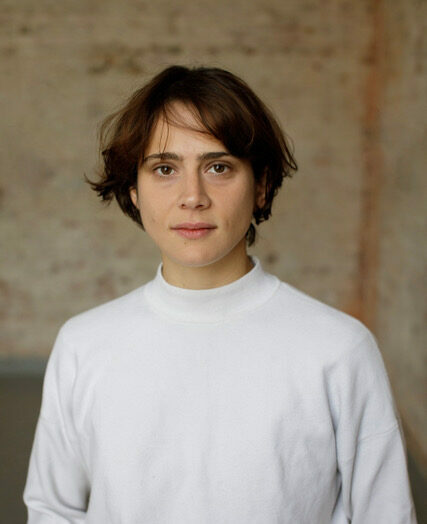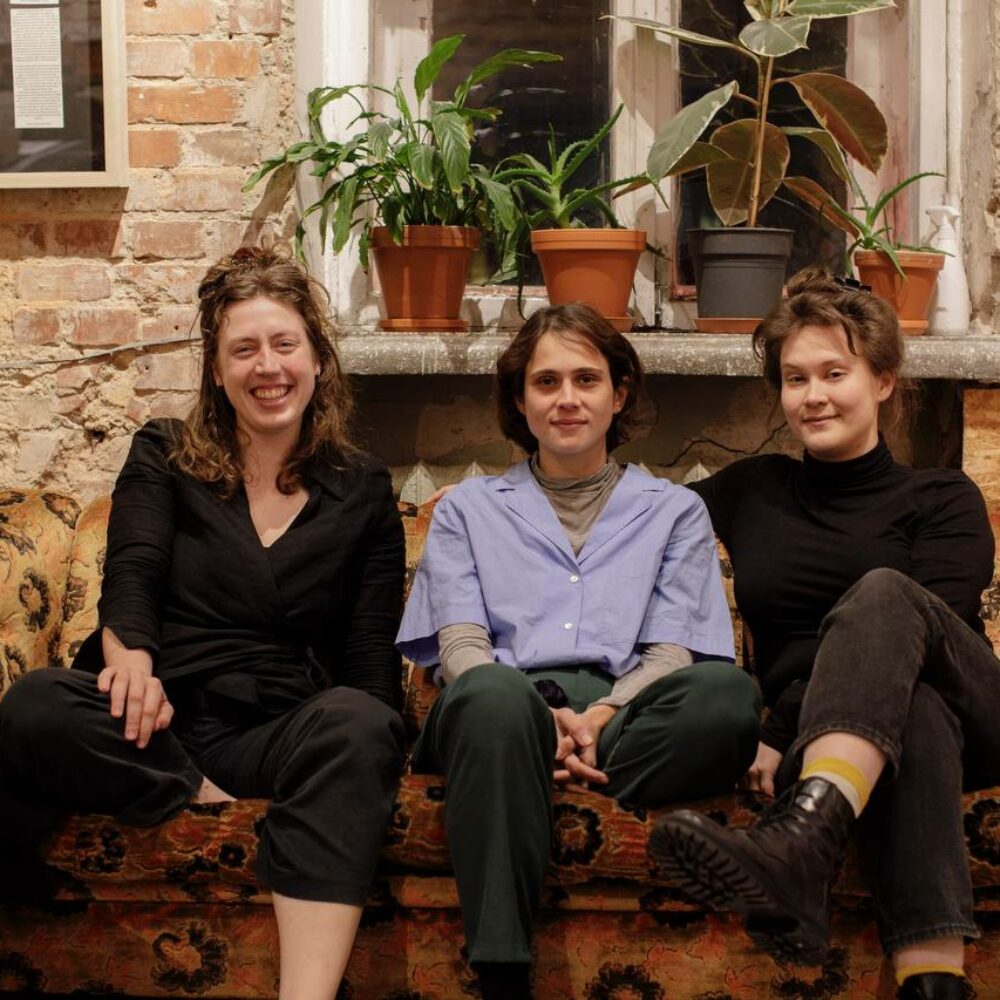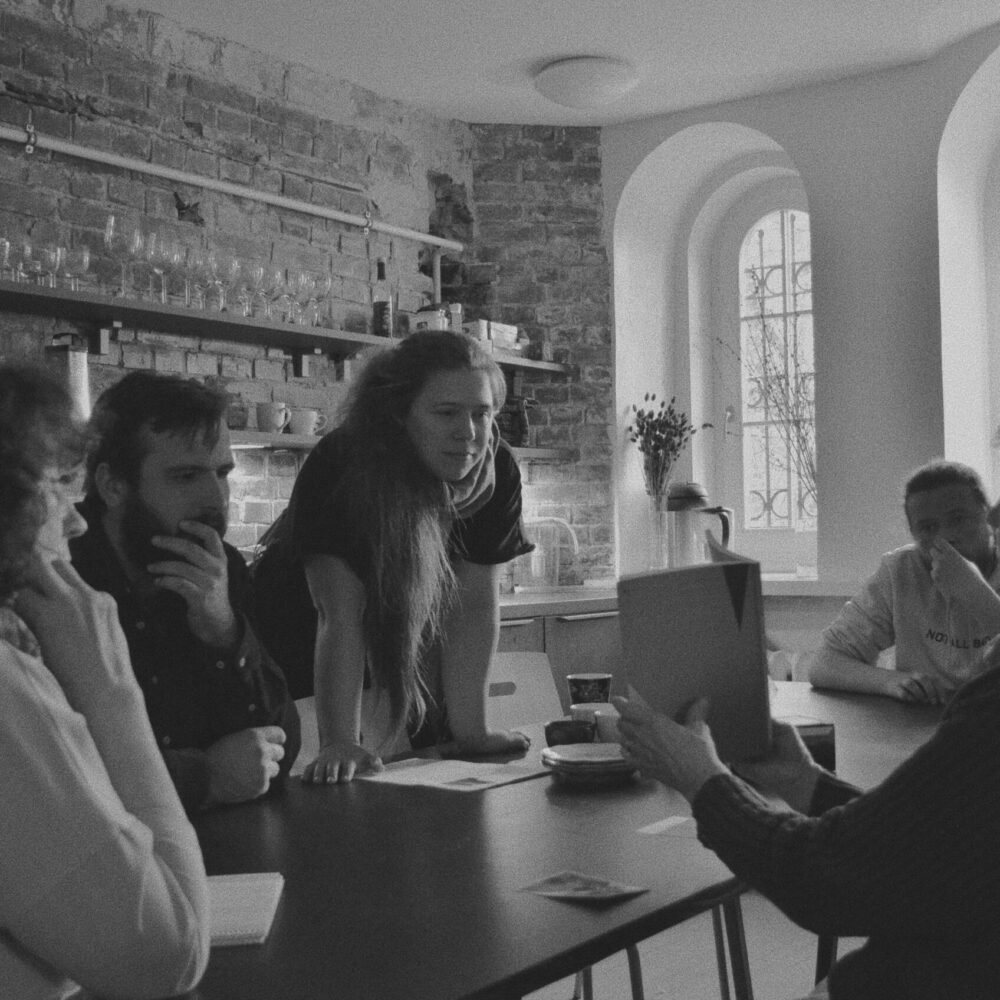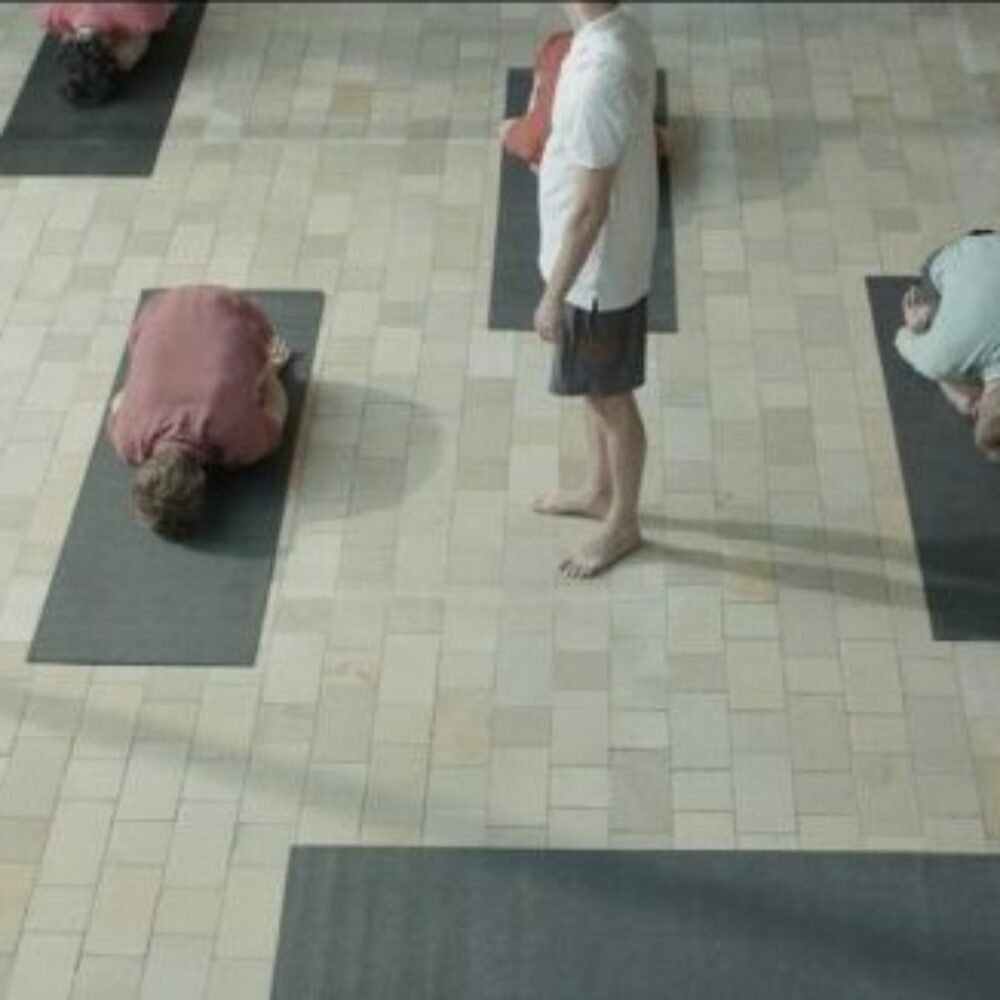Leri Matehha (estonia, germany )
01.03 – 16.04.2023
// BIO
In her research and cinematic works She tries to combine social landscapes and the sensuality of personal memory, as well as looking for stories that make unusual, historical facts visible. Cities for instance are a good field of experimentation for this.
While studying in Cologne, She made a short film in Bat Yam, Israel, that explores in an impressionistic way the power relationship between state politics and the private body. As a second video project, she shot the video work “Unbalanced bear” in her hometown Tallinn, a private video about the Soviet past and the chronology of the supermarkets of her childhood.
Finally, after finishing her studies, She traveled to Eastern Ukraine and investigated the city of Bakhmut to find out how different regime changes have affected the city visually and ideologically. The result of this research is a self-financed short film that is now being screened at international festivals. Even though She lives half of her life in Germany, She feels solidarity with the country she grew up in and its history. The painful remnants of the Soviet past have shaped her artistic and political reality.
// PROJECT
The various regimes of the city of Narva will be analyzed and made visible, as well as how those affect people in their everyday lives today. Moreover, the movie will try to combine social landscapes and the sensuality of personal memory.
Firstly, She would like to show Narva as a visual juxtaposition to the Russian Federation: by examining the location and appearance of Narva Castle, built by the Danes in the 13th century, and Ivangorod Fortress, visible from the opposite bank of the Narva River, built by the Grand Duke of Moscow in 1492. This already illustrates the strange rivalry of the Russians with Estonia, which began in the late Middle Ages.
She would like to follow up on this phenomenon of the inferiority complex that the largest country in the world seems to have by looking at the event that occurred in Narva in August 2022: an infamous tank monument glorifying Soviet power was dismantled. She wanted to observe and film the place where the tank was located. Supposedly, there is a flower scenery there now. Interestingly, in response to the removal of the tank, the Russian authorities erected a similar T-34 tank memorial in Ivangorod near the Narva border crossing the following month. And there are other Soviet monuments in Narva that are now in cemeteries and can be visited and filmed.
It seems that the biggest country in the world needs to demonstrate its power to such a small country as Estonia. This fact is interesting enough to observe. Secondly, She would also like to take a look at the plans that the Soviet regime had for Narva in the early 1950s. After all, Narva was 98% destroyed by the end of July 1944, but the walls of the houses were still intact and could be rebuilt. Instead, in the early 1950s, the Soviet authorities decided to demolish the ruins and build apartment blocks. In addition, before the war, native Estonians were deported from Narva and were not allowed to return after the war. Instead, Russian-speaking workers were brought into the city to populate it. One of the possible reasons for this tactical demographic shift is the plan to build a secret uranium processing plant in the city. Even though this plan did not materialize, it was crucial for the development of Narva. She would like to point out this absurdity of the Soviet bureaucracy and find out what reasons might have played a role in such a strange town planning.
Therefore, She would also like to shoot in Sillamäe, which became the actual site of the uranium factory instead of Narva. Sillamäe used to be a resort and was developed into a closed city by the Soviet Union. She is looking for this kind of contradictory stories. She is also interested in exploring the mystery of nuclear power, a narrative that the Russian Federation still uses today.
Thirdly and finally, She will try to draw parallels between the regime built on deception, bad political metaphysics, secrets and the psyche of the people who were affected by this regime. Through her interview experiences thus far, She has found that people eventually identify with and reproduce on a micro level the shortcomings of the political systems to which they were forced to belong.
She would like to conduct interviews with Russian-speaking locals in Narva. And then lay over the footage either as voice-overs or essays. Expose and playfully deconstruct the private “bad political metaphysics” of the Russian regime. As well as reflect the disillusionment of private biographies in the landscape of the city.



